
Comfort and survival.
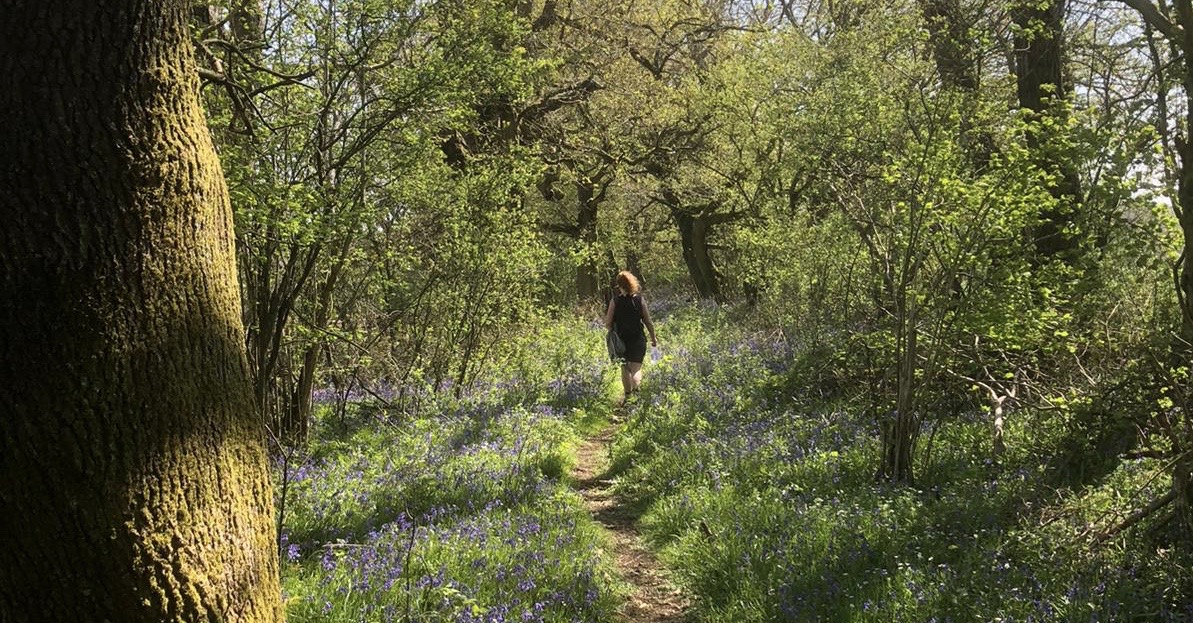
Following my last email 10 days ago about posture, as well as walking in the bluebells, I have been doing some courses on ergonomics, both vehicle and office work station set up. It is interesting to see the link between set up and pain patterns and I thought I would share some advice on practical strategies to help when working from home. If you would like more specific advice or if you are feeling any pain when at work then do get in touch.
For those not working from home I have attached some other useful advice on surviving the lockdown.
Remember at the Natural Health Centre we are still offering reassurance and advice, anything from a brief chat on the phone to a video consultation with full history taken, examination and advice regarding self help and exercises.
Click on these links for tips and advice:
10 tips for staying comfortable and sane in your home workspace
12 practical strategies for surviving lockdown
Once again if you would like to share this information with friends or colleagues then please do.
Best wishes and stay safe,
Kim
12 Benefits of good posture
So we have another three weeks of lockdown at least. It is interesting how it is affecting people differently.
For some their working life has not changed much at all, for others they are still working but from home and for some, such as me, they hardly working at all. I am enjoying more free time, the garden is looking very cared for, I have been exploring lots of local walks and I am doing lots of online courses. I think though for me it is the contact with people I am missing most, never before has a brief chat with someone out on a walk seemed like such a treat.
Talking to patients remotely I have discovered that for some the change has been very beneficial, less driving, less stress and more free time at home has meant lots of ongoing aches and pains have reduced. For others sitting at the dining room table working, juggling childcare or doing too much in the garden is taking its toll.
I thought I would share with you some advice on posture. As you see posture is not just about how you sit but is every position you move through every day.
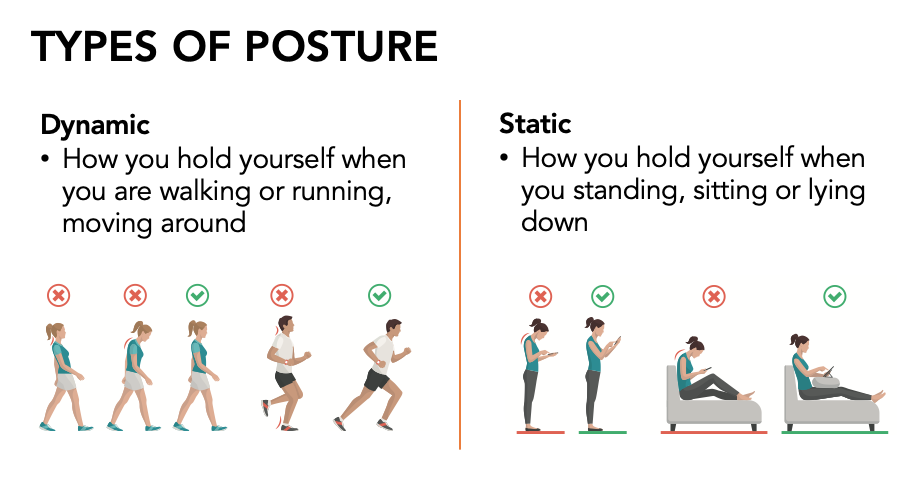
Please click on the link below to see the 12 Benefits of good posture leaflet.
If this is not useful to you but you know someone who might be interested, please forward this email on to them.
Telephone and video consultations with Kim Burnett
The benefit of a telephone or video consultation and treatment is reassurance of what is causing your discomfort and self help techniques to try at home.
You will be asked all the usual questions for a full consultation and a variation of the physical examination where you will be asked to perform certain movements and report how you feel. A video consultation is obviously better for us to get visual clues but not absolutely necessary.
You will be screened for any red flags to see if treatment is appropriate or if an onward referral is required in the same way you would with a face to face consultation. You will get a proper diagnosis and prognosis bearing in mind you won’t get the usual hands on release.
You will be able to ask lots of questions to understand why you are in discomfort and be given lots of advice on how to manage it. Advice regarding heat or cold packs, over the counter medication, self help techniques and re-habilitation exercises. You will also be given lifestyle advice such as workstation set up if working from home, regular breaks etc.
Follow ups will be done to check up on how things are improving and with video follow ups we can demonstrate and check to ensure you are doing the exercises correctly. If things are not resolving we can change our advice.
Charges will remain the same for the initial video consultation but include free telephone follow ups as required. Fees will be reduced if appropriate for people suffering financial hardship. You can ring and discuss whether you think it is appropriate for you and your complaint at no cost.
Please phone and ask for Kim to contact you to discuss a convenient time and how to set up the video link if appropriate. (It’s very easy)
Testimonial :
Kim was a life saver today when I was in so much pain and didn’t know what to do . The video consultation was able to establish what the issue was and Kim was able to put together an exercise programme to help along with guidance on self treating . I would recommend this option to anyone who needs the service of an Osteopath at the moment, it certainly felt like a life saver to me today . Thanks Kim (Nicky 28/03/2020)
Why women should do weights
Osteoporosis is a condition that makes bones more brittle and prone to fracture. Although osteoporosis can effect men and younger people, post-menopausal women are most at risk. One of the best ways to help maintain healthy bones is to exercise regularly – which encourages the bones to absorb calcium and other mineral salts that keep bones strong.
Weight bearing exercises and weight resisted exercises are best for strengthening bones and muscles and as well as helping to keep bones in good health may also reduce the likelihood of falls as you age. Weight bearing exercises are those where your body is supporting its own weight, such as walking or housework or carrying groceries. Weight resisted exercise involves pushing or pulling against an additional weight, like a dumbbell or barbell or resistance equipment in a gym.
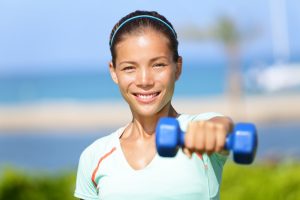 The younger you start, the better
The younger you start, the better
Anyone can benefit from weight training but it has been demonstrated that younger women who trained using weights have stronger bones later in life, this essentially means that you can bank bone when you’re younger to help prevent fractures later in life – a kind of insurance scheme for your body. A life time of active living not only protects your bones but also keeps your heart healthy and may protect you from other diseases such as cancer and type two diabetes.
But starting at any age will help
Everyone can benefit from increasing their activity levels. Studies have shown that people who have already been diagnosed with osteoporosis can improve their bone health significantly through weight bearing exercising, the key is getting good advice on how to move well and how to self- manage.
Some more benefits
Strong muscles burn more calories, so if you need to control your bodyweight, lifting weights can help. It also helps with balance and can help you to regulate your sleep patterns.
‘I don’t want to look muscled’
It takes women a lot of heavy weight lifting, and sometimes the use of controlled substances like steroids and hormones, to achieve the physique of the heavily muscled power lifter. Women don’t normally have enough testosterone in their bodies to develop bulging muscles, but can, with regular, moderate training achieve lean, toned and strong muscles.
‘I hate gyms’
No problem. There are plenty of other exercises you can do that don’t involve a visit to the gym. Dancing, yoga, tennis, Pilates, walking, running, gardening and even housework count – all you are aiming to do is increase your heart rate and make yourself feel a little warmer. You can do it in several short blocks of 15 minute or more but aim for at least a total of 150 minutes per week over at least 5 days per week for the best results. If you’re unused to exercise, start slowly and build up to this target.
I don’t know where to start
This is where we, as osteopaths, can help. We can screen you for any health concerns that might affect your ability to exercise, help to resolve any injuries or pain that might be holding you back and advise you on what exercises might suit your goals best. WE can teach you how to exercise correctly, avoiding injuries and how to gradually build up as your ability and fitness levels improve.
Osteoporosis Awareness and Prevention Month – May 2016
It is estimated that around 3 million people in the UK have osteoporosis. Osteoporosis is a condition in which the usually strong support struts that make up the inside of most bones becomes thinner, which can lead to bones becoming fragile and breaking easily, resulting in pain and disability.
In the UK, one in two women and one in five men over the age of 50 will fracture a bone, mainly due to poor bone health. But osteoporosis is often a silent condition, giving no pain or other symptoms to alert you to the fact until the worst happens and a bone breaks. As such, many people living with osteoporosis are unaware that they have fragile bones until this happens, sometimes with devastating consequences. Indeed an alarming new study published by the International Osteoporosis Foundation suggested that 37% of men that sustain an osteoporosis related hip fracture will die in the first year following the break.
Those that smoke or drink in excess of the recommended daily alcohol intake are at greater risk, but gender, genetics, age, race and low body weight are all contributing factors.
However, it’s not all doom and gloom. There is a lot you can do to prevent the condition, and to reduce your chance of breaking a bone if you do get it. As osteopaths we can screen you for the condition using a special online screening tool called the FRAX questionnaire and can give you dietary, exercise and lifestyle advice to help manage your risk factors to reduce the impact of the condition on your lifestyle.
To find out more about the prevention, diagnosis and treatment of osteoporosis, contact the National Osteoporosis Society via their confidential helpline (0845 450 0230) or by visiting their website at: www.nos.org.uk
For appointments contact us at the relevant clinic.
Back Pain and Children
 Like adults, children can suffer from back pain as a result of a variety of lifestyle activities. And like adults, there are number of things that parents and carers can do to prevent issues arising.
Like adults, children can suffer from back pain as a result of a variety of lifestyle activities. And like adults, there are number of things that parents and carers can do to prevent issues arising.
If your child does complain of back pain, it is important to seek advice from qualified professional, such as an osteopath. An osteopath will help to establish the cause of the problem and will provide advice on treatment, or refer you for further examinations if required.
Good school bags
Children are often required to carry bags full of books, PE kits, musical instruments and other equipment to and from school. Parents should try to limit the weight of school bags as much as possible and invest in a good quality back pack that the child should wear across both shoulders, ideally with a strap across the chest to keep the load close the their body. Packing the bag with the heaviest items (such as laptops and heavy books) closest to child’s body, will also make carrying more comfortable and less likely to strain the muscles of the back.
Limit screen time
Looking down to use smart phones, tablets and laptops for an extended period can pull the back and neck into an unnatural posture, resulting in pain. Placing limits on the time spent using devices and encouraging regular breaks may help to avoid problems. If your child has to use a laptop for homework, consider purchasing a support that elevates the screen to a height that allows him or her to sit up straight to look at it.
Regular exercise
A sedentary lifestyle is known to contribute to the risk of developing back pain, as well as contributing to obesity. Regular physical activity helps to keep the core muscles that support the spine strong and maintain flexibility, which will help to avoid back pain. Encourage lots of active play, walking, running, swimming, cycling etc to keep your child fit and healthy.
The right bed and pillow
Good quality sleep is vital for both physical and mental development. Make sure that your child has a good sized comfortable bed with a firm mattress and a pillow that supports their head without lifting it too high.
Osteopathic Treatment for your child’s back pain
Your child’s back pain may benefit from osteopathic treatment. Using gentle manual therapy an osteopath will help to resolve any stresses and strains that are affecting their body and relieve their pain. They can also provide lifestyle advice that may help to prevent the problem from coming back.
Telephone: 01635 580200
Email: info@nhcnewbury.co.uk
The Natural Health Centre
8 Falkland Road
Newbury
Berkshire
RG14 6NY
Telephone: 01672 541198
Email: info@kimburnett.co.uk
Home Practice
Beech Cottage
Aldbourne
Wiltshire
SN8 2EJ

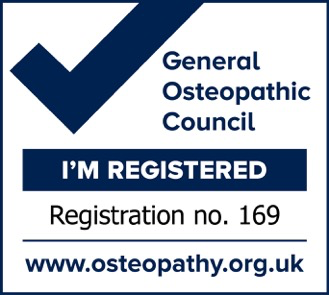
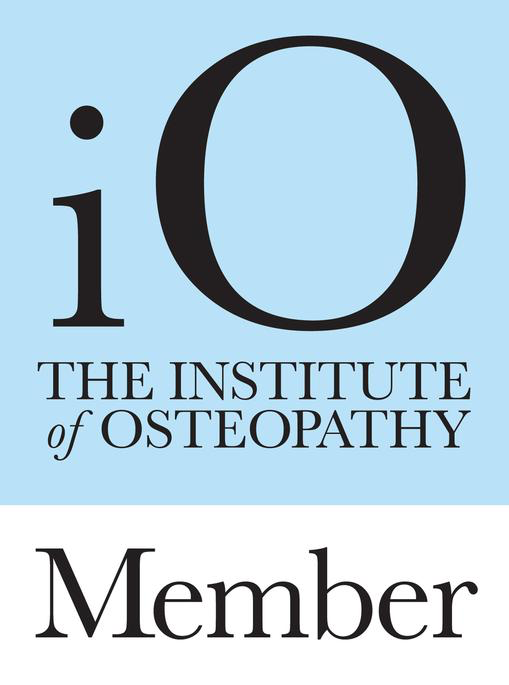
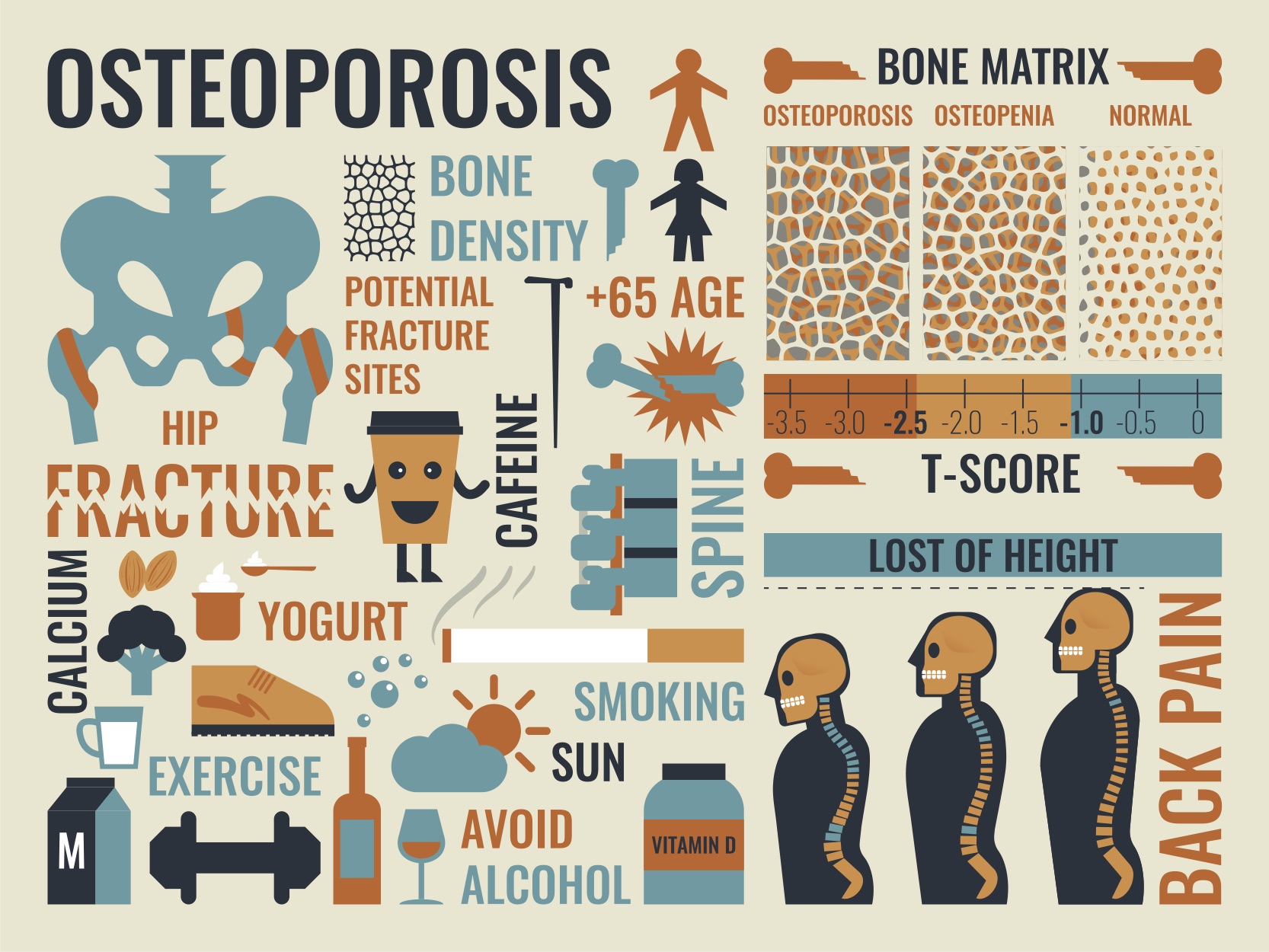
0 Comments